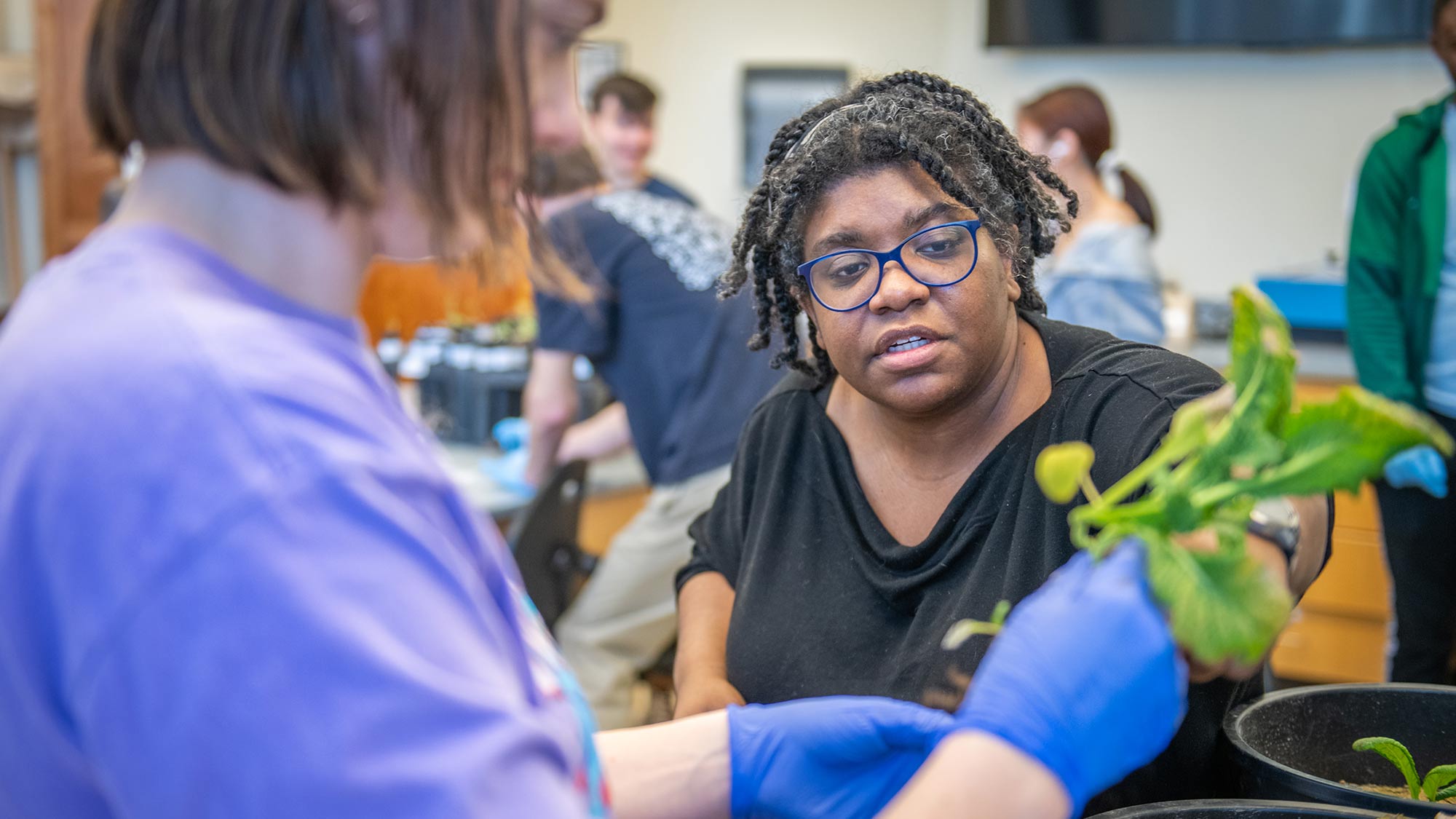Scientists and policymakers fear that by 2050, the world won’t be able to produce enough food to support its population. We need sustainable solutions, and biologist Chandra Jack is quite literally digging for them. Jack studies plant microbe interactions, examining how microbes influence traits such as when a plant flowers or whether it can compete against neighboring vegetation, and applies that knowledge to benefit society through sustainable agriculture.

How can farmers use microbes to increase crop yields?
“Even if we can feed the world now, in 20 years we won‘t be able to unless we make some significant changes,” Jack says. By studying how microbe interactions affect plant traits, Jack hopes to contribute to the development of new, more sustainable ways to increase food production.
The forthcoming food crisis dates to the 1950s, when synthetic fertilizers were a major technological advance and, along with the development of new crops, allowed farmers to produce significantly more food.
Since then, researchers have discovered that synthetic fertilizers are environmentally and economically costly, according to Jack, who wants to understand how to make healthier soil to benefit people and the planet.
“Researchers want to use microbes to replace synthetic fertilizers,” Jack says. “We know what they can do in the lab. We don’t know what they can do in the wild or the field.”

